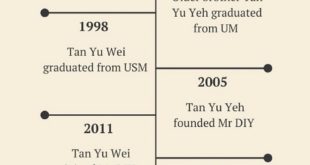Last week, Shopee’s parent company, Sea Limited announced that it will be hiring 500 Singaporeans in a partnership with IMDA.
In the same week, sources revealed that Amazon might be taking over a portion of Citigroup’s office space here as the latter looks to cut back on its office space following its expiring 10-year lease.
Currently, the US marketplace giant is hiring for over 200 jobs based in Singapore, according to its careers page.
A quick online check also showed that Lazada and Qoo10 are hiring actively, from data science to strategy to product management.
This comes as little to no surprise since the e-commerce sector saw a spike in transactions for the past few months as the pandemic forced most people to stay at home.
Based on the overall e-commerce traffic in Singapore, the top five e-commerce players that emerged are Shopee, Lazada, Qoo10, Amazon, and EZBuy.
| Rank | E-commerce Platform | Q1 2020 | Q2 2020 | Percentage Increase (%) |
| 1 | Shopee | 5,963,300 | 10,879,900 | 82% |
| 2 | Lazada | 7,786,700 | 8,570,000 | 10% |
| 3 | Qoo10 | 6,646,700 | 7,447,400 | 12% |
| 4 | Amazon.sg | 2,833,300 | 3,653,333 | 29% |
| 5 | Ezbuy | 1,031,900 | 1,681,800 | 63% |
Asia’s largest e-commerce companies and Amazon are all vying fiercely for a share of Southeast Asia’s 650 million increasingly smartphone-savvy market.
These companies are hiring for more headcount as the competition in this industry is set to intensify.
If you are looking to pursue a career in e-commerce, there is no better way than to accumulate experience at one of these major and well-regarded companies in the region.
But which one of these firms should you join?
This can be a tough question to crack so we’ve taken a look at the growth and attractiveness of these top four e-commerce companies in Singapore.
Shopee

Sea Limited, the parent company of Shopee, was founded in 2009 as an online gaming company Garena and didn’t jump into e-commerce until 2015. It also owns digital financial services provider SeaMoney.
Lazada was already a leading e-commerce platform in the region when it launched its e-commerce platform Shopee.
Shopee operates in high-growth emerging markets such as Indonesia, Malaysia, Thailand, Vietnam, the Philippines, with the exception of Singapore.
Besides leading e-commerce, Sea Limited is applying for a digital full bank license in Singapore, as it aims to accelerate its push into financial services.
Recorded Highest Visits As Of Q2
Shopee took the crown as the most-visited e-commerce platform in the city-state as of Q2 2020.
The company saw an 82 per cent increase in the number of users from Q1 to Q2, gaining nearly an additional five million in average visitors in the second quarter alone.
The surge in the number of visits was also potentially driven by its strong promotional efforts through initiatives such as the 4.4 flash sale and Super Mart Month during the circuit breaker period.

World’s Best-Performing Large-Cap Stock
Sea Limited is listed on the New York Stock Exchange.
According to The Motley Fool, Shares of Sea Limited (NYSE:SE) were climbing yesterday (Oct 6) and its stock is now up more than 400 per cent over the last year, and has been one of the big winners during the coronavirus pandemic.
Apparently, Tencent Holdings Limited, WeChat’s parent company, owns 20 per cent of Sea Limited and is a partner of the company.
Sea Limited has also become the world’s best-performing large-cap stock, said Bloomberg.
Turning Profitable
In the most recent quarter, its revenue nearly doubled to US$ 1.29 billion, rising 93 per cent from a year ago. The company also posted an adjusted EBITDA profit of US$ 7.7 million, up from a loss of US$ 11 million.
Sea Limited reached unicorn status (startups with a valuation of over US$ 1 billion) and now has a market cap of US$ 80 billion.
A Collaborative Work Culture
At Shopee, they have a project-driven and collaborative work culture which means you get to propose and push forward with initiatives you think will move the business forward.
Shopee has been said to be a fun working environment to work in. Things move fast and get executed quickly as well, according to reviews online.
This could also be the reason why Shopee took over Lazada even though it was a latecomer to the game — through fast execution and innovative marketing tactics.

Under the IMDA tie-up, Sea will hire and train 500 Singaporeans — 400 entry-level and 100 mid-career (individuals with more than three years of working experience) employees.
These trainees will undergo six months of training at Shopee, in areas such as product management, software engineering and user experience design.
They will have a mentor or project adviser from the same department. There are also opportunities to be employed under Sea after the completion of the training.
Employee Benefits And Perks
Apparently, employees can enjoy a free rejuvenating massage twice a month by their in-house masseuse. There are also sleeping pods around for a quick recharge.
For those who prefer to eat their stress away, Shopee has a well-stocked pantry that also hosts free staff breakfast every Monday mornings.
Shopee also provides a dinner catering service, where employees can pre-order dinner from a wide range of food options through their intranet.
Lazada

Lazada was founded in 2012 by European tech conglomerate Rocket Internet to build the “Amazon of Southeast Asia”. It then launched in Singapore in 2014.
Before Shopee was launched, Lazada dominated the e-commerce market and after four years, it was sold to Chinese Internet giant Alibaba in 2016 for a valuation of US$ 2 billion.
Alibaba invested a further US$ 1 billion in 2017 to increase its equity from 51 to around 83 per cent, and in 2018, it raised its stake further with an additional US$ 2 billion injection.
Hot On Shopee’s Heels
Emerging second place to Shopee, the Alibaba-backed e-commerce platform saw an increase of 10 per cent in traffic compared to Q1 2020, recording an average of 8.5 million visitors as of Q2 2020.
Like Shopee, Lazada operates in high-growth emerging markets such as Indonesia, Malaysia, Thailand, Vietnam, the Philippines, with the exception of Singapore.
Lazada was leading the race in Q1 but Shopee overtook it in Q2 by more than two million visitor visits.
The Largest Virtual Mall In Southeast Asia
In September, Lazada refreshed LazMall with more features and offerings.
LazMall is now the region’s largest online mall with products from over 18,000 brands, including 30 tenants from Singapore’s Marina Square shopping mall.
Shopping at LazMall mimics a brick-and-mortar experience, but at the comfort of one’s own home.

Conquering The Online Grocery Delivery Market
Lazada also has a strong presence in the online grocery delivery market through its RedMart business.
RedMart reported a 4x jump in sales since Singapore implemented movement restrictions in early April.
The Singapore-based online grocery retailer was acquired by Lazada for an undisclosed sum in November 2016, and had moved over to the e-commerce platform last year.
Dynamic Work Culture
Lazada seems to be hiring all-year round as there are always open positions and we have featured them in job-related articles a few times this year.
The open roles range from data science to category management to strategy and planning.
According to their website, Lazada seeks “dynamic, entrepreneurial and broad-minded individuals” to join them. It may mean that it can be a good place for you to grow and develop your career.
However, it also means that it will be very fast-paced — which is expected in e-commerce companies.
On Glassdoor, reviews were mixed with some saying there is “low work life balance” and “bad management” while others said that there is “job security after Alibaba’s takeover”.

Employee Benefits And Perks
According to Glassdoor, there were different opinions about Lazada’s employee benefits.
Some have mentioned that they have a “comprehensive insurance policy” — in the form of travel, accident, personal accident, major medical, surgical insurance and hospitalisation insurance. They also offer health screening.
Whereas, some have said that their “health insurance, dental and maternity benefits are average”.
Qoo10

Qoo10 is a homegrown e-commerce platform. It was founded in 2010 as a joint venture between the Korean e-commerce site Gmarket and eBay.
The marketplace is mainly established in Singapore and Japan but accessible in most of the Asian countries.
In Singapore, Qoo10 primarily sells fashion goods and is especially popular for its Korean products.
Ranking Third Place
In the second quarter of 2020, Qoo10’s number of monthly visitors amounted to approximately 7.45 million and puts it at third place, behind Shopee and Lazada.
Its highly localised offerings appeal to the Singapore market and Qoo10 has since expanded to Indonesia, Malaysia, China, and Hong Kong.
While Shopee, Lazada or Amazon tend to focus more on foreign brands, Qoo10 sells more goods from local merchants which could appeal more to Singaporeans.

However, it is worthy to take note that Qoo10 has been in the Singapore market longer than its main competitors.
Qoo10 had more than enough time to learn its way around the local e-commerce landscape before Zalora (2013), Lazada (2014), Rakuten (2014) or even Amazon (2017) came along.
However, when the newer players came in, they launched aggressive marketing campaigns to gain more customers and this may have lured Qoo10’s users away.
With huge capital backing them, it would no doubt have threatened Qoo10’s dominance.
Not Hiring As Aggressively

A quick check on their careers page show that they are currently hiring for seven roles, ranging from B2B Sales Specialist to Graphics Designer.
There are only five job openings on their Jobstreet page.
On Glassdoor, employee reviews cited “good learning experience in e-commerce” but also mentioned about “low salary and long working hours“.
Employee Benefits And Perks
According to their Jobstreet page, they offer medical benefits, miscellaneous allowance, dental benefits and insurance.
They also provide dinner reimbursements, stock options, other incentives and bonuses.
Amazon Singapore

Founded in 1994, Amazon started off as an online bookstore, and has since ballooned into the world’s largest e-commerce company.
It has expanded to offer a seemingly limitless range of products such as video games, software, electronics, clothing, toys, and food.
Its cloud computing service, Amazon Web Services is the world’s largest seller of cloud computing solutions.
Amazon also produces its own movies and TV shows and Amazon Music provides access to millions of songs.
World’s Largest E-commerce Company
This growth has transformed Amazon into one of the largest companies in the world by market value, with a market capitalisation as of 9 July 2020 of nearly US$ 1.6 trillion.
In the trailing 12-month period ending July, Amazon generated revenue of US$ 296.3 billion and net income of US$ 10.6 billion.
Online store sales jumped 48 per cent to US$ 45.9 billion in the second quarter of 2020.
Growth Has Been Slow Here
Amazon was a late arrival to Southeast Asia with its launch in Singapore in 2017 coming 22 years after it first started selling products.
Its growth has been slow and it hasn’t made much impression in Southeast Asia.
However, Amazon Singapore seems to be gaining around with a growing presence since Q4 2019.
It saw its business thriving during Covid-19 and it emerged as the fourth-most visited e-commerce platform in H1 2020 with its traffic surging to 3.6 million from 2.8 million.
Given its constant growth and maturity in the e-commerce sector, Amazon.sg may catch up fast to increase its market share in the upcoming quarters.
Harsh Work Culture, Or Not?
Last week, sources reveal that Amazon could be expanding its office space and its careers page show 200 over openings in Singapore.
However, there has been mixed feelings about the work culture at Amazon.
According to Glassdoor’s inaugural report on “Best places to work in 2020 in Singapore”, Amazon emerged fourth place with a 4.3 rating.
The list includes major companies from banking, oil and gas and insurance.

The reviews included feedback on a range of aspects including career opportunities, compensation, senior management, and culture and values.
However, in 2015, Amazon’s excessively tough work culture was exposed in a New York Times article. Some have even described the environment as “abusive”.
“At Amazon, workers are encouraged to tear apart one another’s ideas in meetings, toil long and late (e-mails arrive past midnight, followed by text messages asking why they were not answered), and held to standards the company boasts are ‘unreasonably high’,” according to New York Times.
Employee Benefits And Perks
They offer insurance cover, relocation benefits, retirement benefits as well as other common benefits. There are also bonuses and share options.
Besides those, other benefits seem very standard.
Which Company Is Most Attractive?
There are definitely pros and cons working in each company, and your choice will depends on what you are looking for.
I personally would choose to join Shopee to further my career in e-commerce as Shopee is the fastest-growing platform right now.
Though it didn’t enter the market till 2015, Shopee had the foresight and ability to analyse the different needs of their various markets and adapt accordingly.
Coupled with fast execution and innovative marketing tactics, Shopee eventually claimed dominance in Southeast Asia.
I value collaboration and an open work culture where it is about teamwork and you get to propose ideas and have them considered, which seems to be synonymous with Shopee.
This is not suggesting that the other companies are not attractive, but all in all, Shopee stands out in terms of growth, prospects and work culture.
However, as a young tech company, Shopee moves quickly and expects you to keep up — just like any of the companies in the list.
Anyone has to expect to put in the long working hours, as that seems to be a common thing with e-commerce companies.
Featured Image Credit: TechCrunch / Glassdoor / Lazada / Qoo10



